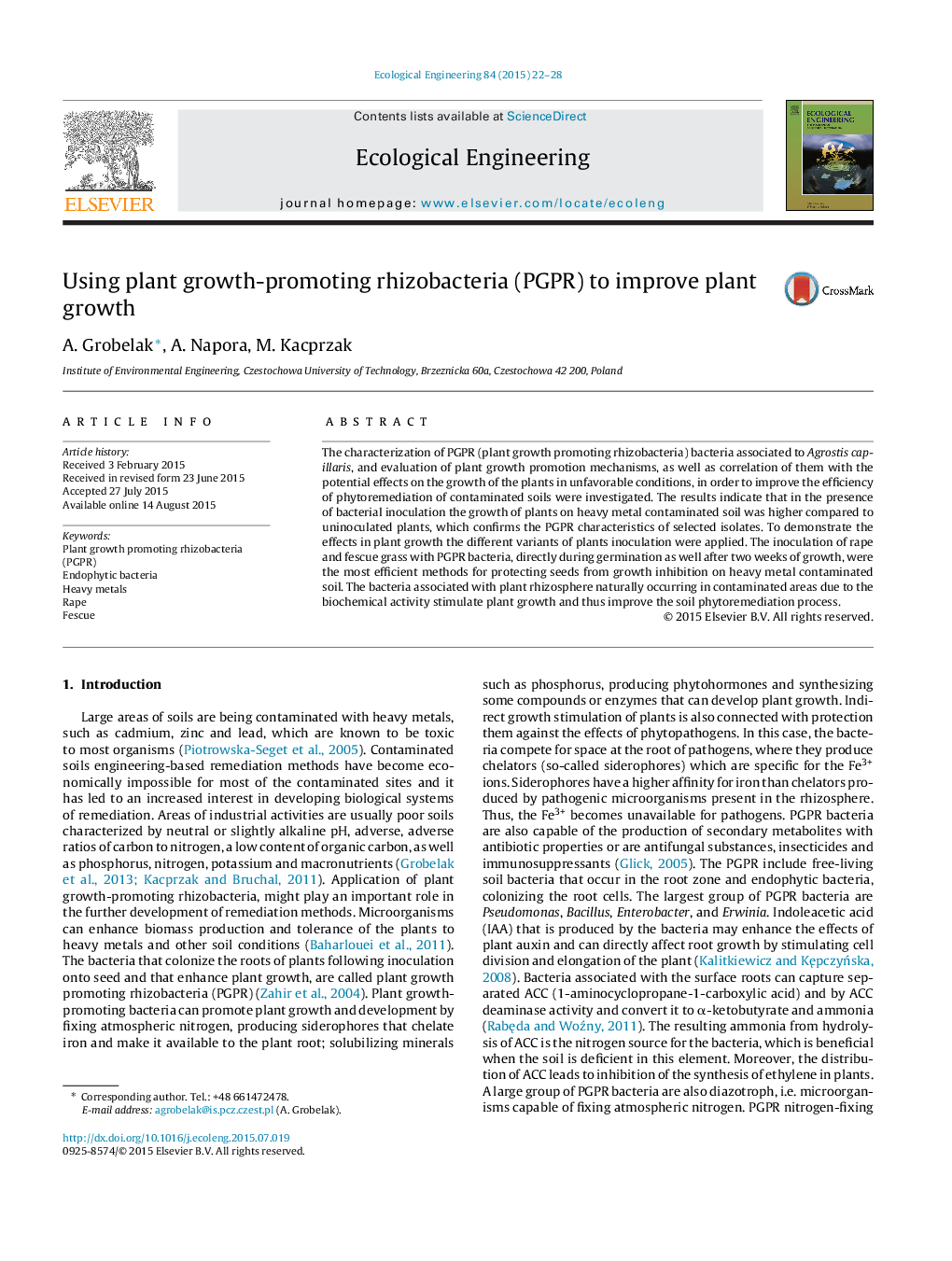| Article ID | Journal | Published Year | Pages | File Type |
|---|---|---|---|---|
| 4388761 | Ecological Engineering | 2015 | 7 Pages |
•PGPR improve the phytoremediation in unfavorable conditions.•Inoculation with PGPR during germination as well after two weeks of growth are the most efficient PGPR form contaminated areas stimulate plant growth effectively.
The characterization of PGPR (plant growth promoting rhizobacteria) bacteria associated to Agrostis capillaris, and evaluation of plant growth promotion mechanisms, as well as correlation of them with the potential effects on the growth of the plants in unfavorable conditions, in order to improve the efficiency of phytoremediation of contaminated soils were investigated. The results indicate that in the presence of bacterial inoculation the growth of plants on heavy metal contaminated soil was higher compared to uninoculated plants, which confirms the PGPR characteristics of selected isolates. To demonstrate the effects in plant growth the different variants of plants inoculation were applied. The inoculation of rape and fescue grass with PGPR bacteria, directly during germination as well after two weeks of growth, were the most efficient methods for protecting seeds from growth inhibition on heavy metal contaminated soil. The bacteria associated with plant rhizosphere naturally occurring in contaminated areas due to the biochemical activity stimulate plant growth and thus improve the soil phytoremediation process.
